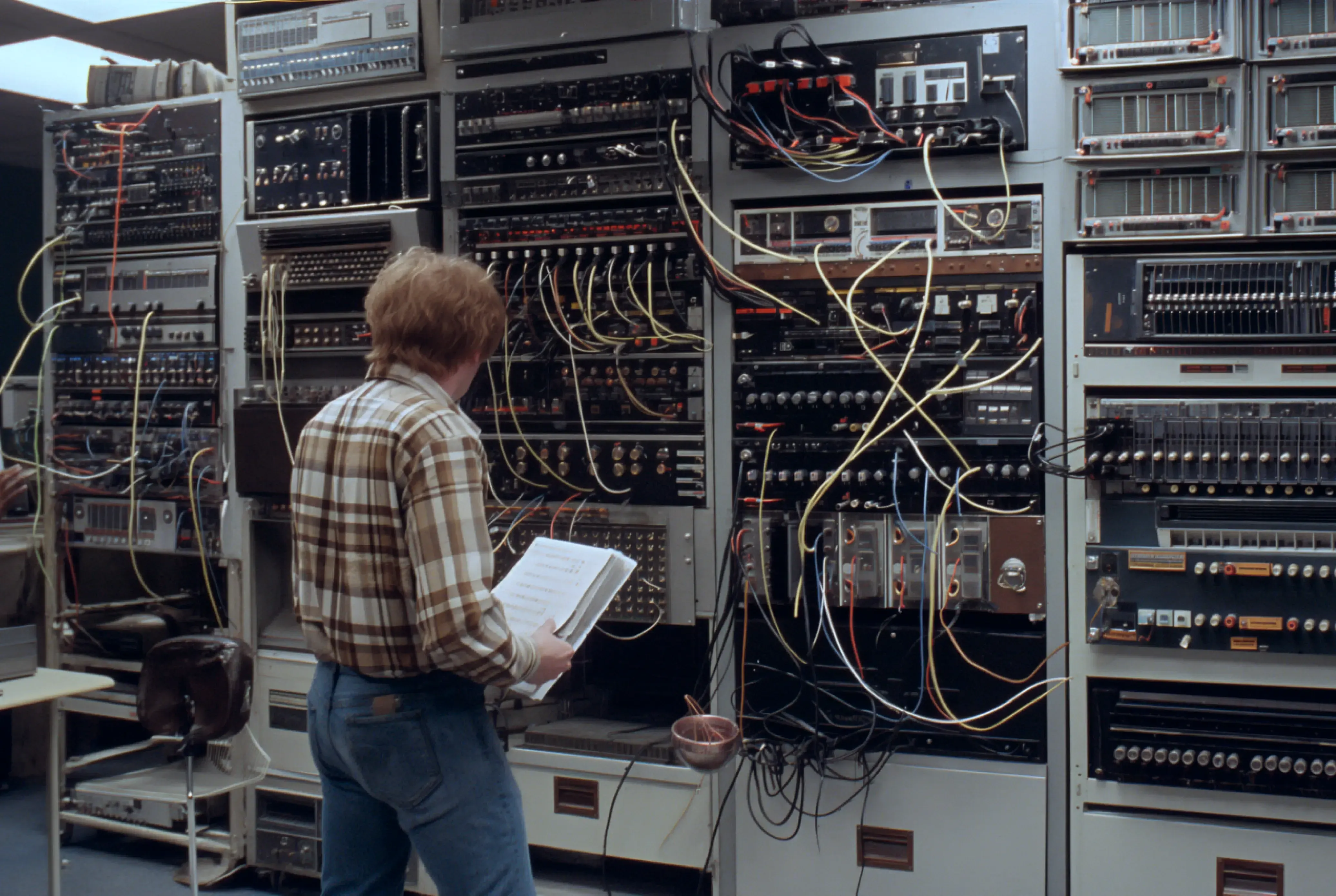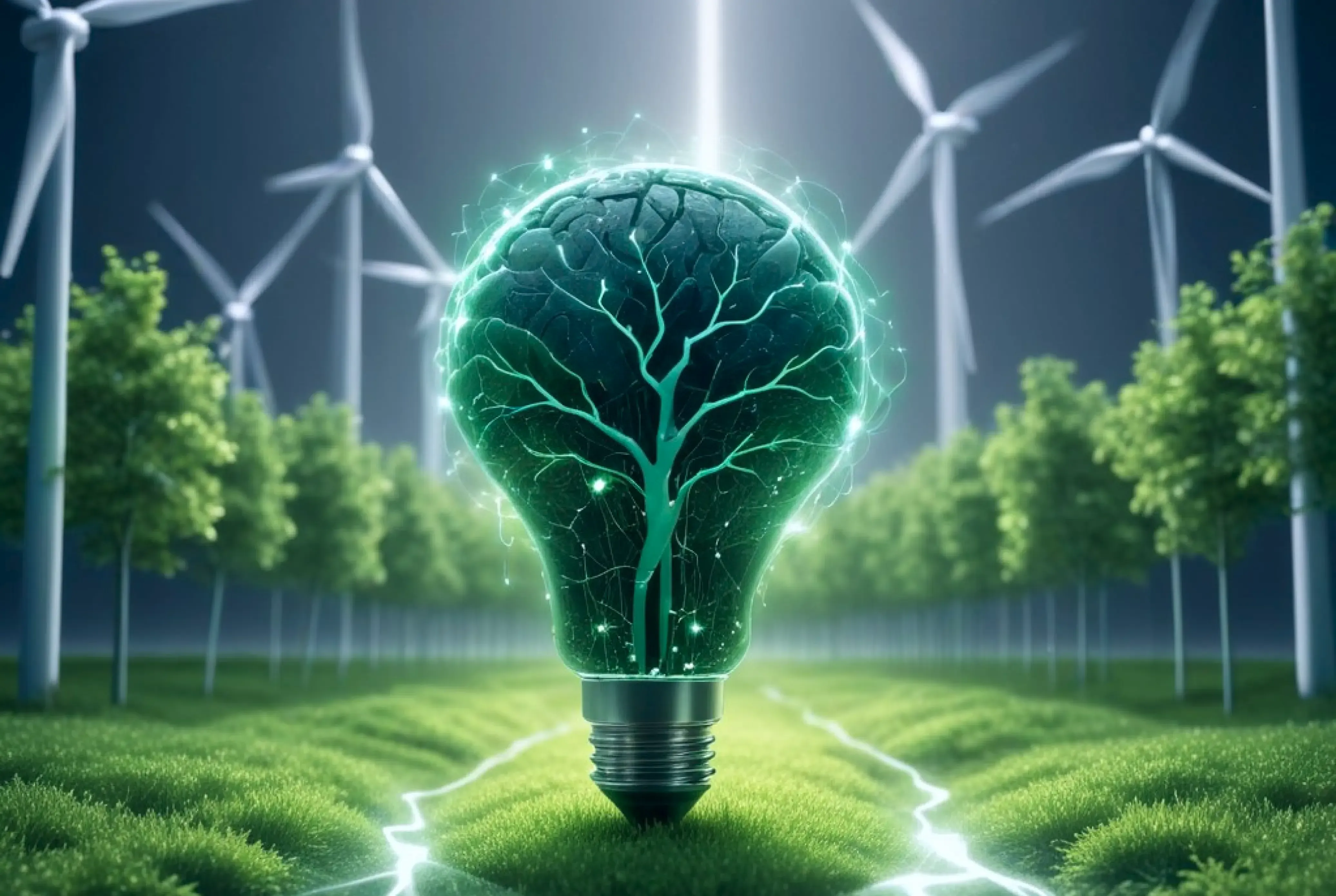
AI for sustainability: Making the future greener

Valeria Bulgakova
IT Solutions Consultant at Modsen
With environmental issues taking center stage globally, everyone’s excited about how we can make our world more sustainable. As tech enthusiasts dedicated to making a difference, we’re eager to harness the power of AI for a better future. But it’s not all sunshine and rainbows – there are some concerns too. So, let’s dive in and uncover how AI can be a green game-changer, when it might fall short, and most importantly, what every business must ponder to sculpt a sustainable tomorrow.
Understanding AI’s environmental impact
First, let’s address the elephant in the room – AI’s energy consumption. Experts say training one AI model emits roughly 300,000 kg of CO2 – that’s like 125 NYC-Beijing round-trip flights or 5 times an average American car’s lifetime emissions! Add the carbon footprint of infrastructure and material mining, and AI’s environmental impact seems immense.
Indeed, AI can be energy-intensive, but it’s important to put things into perspective. Have you ever heard about the early days when computers would fill entire rooms and consume energy like there was no tomorrow? Fast forward to today, and technological advancements have significantly improved energy efficiency. As we’ve witnessed remarkable progress in shrinking computers’ footprints over time, we’re confident that AI, too, can become more sustainable.

AI data center? Not quite – just an early computer.
A green AI roadmap
Sure, while we’re hopeful about AI becoming more eco-friendly in the future, there’s no time like the present to act. Recognizing the potential environmental impact of AI, let’s not delay in making it more sustainable. Here’s a roadmap for fostering “green AI” and scaling eco-friendly applications:
Go renewable
Power data centers with clean energy, a popular strategy among industry leaders.
Boost model efficiency
Save time and energy by using pre-trained AI models.
Smarter data centers
Save energy with server virtualization, consolidating hardware resources.
Cooler cooling systems
With data center cooling guzzling 33-40% of energy and billions of litres of water yearly, efficient cooling tech and strategic locations make a massive difference.
Curious about Modsen’s green initiatives? Learn more about them here. Together, we can create a greener future for AI by balancing tech progress with environmental responsibility.
AI-driven sustainability solutions in action

As we transition our attention to the practical realm, it becomes evident that AI is more than a theoretical concept; it’s already reshaping industries. Let’s explore tangible AI applications within sustainability, highlighting their considerable potential. Our insights are drawn from current practices, partner experiences (no details, unfortunately, due to NDA), and significant public cases.
Energy optimization
AI is revolutionizing energy management in various large-scale industries by analyzing real-time data to identify inefficiencies and minimize consumption. A prime example is the UK’s OpenLV project, which has significantly reduced energy consumption, emissions, and costs.
Smart farming
As the population grows, AI helps farmers optimize resources like water and fertilizer, boosting yields and reducing environmental impact. Several applications exist today, including CropX’s AI platform that analyzes soil data and crop requirements, achieving a 30% reduction in fertilizer use, 25% water savings, and 20% higher yields.
Renewable energy integration
AI makes renewable energy systems more efficient and reliable. See how Xcel Energy’s AI-driven wind farm management optimizes turbine performance and keeps downtime low.
Got any questions about data product development?
We’re ready to cover all of them during a free expert consultation.
Dr. Gleb Basalyga
PhD, Senior Machine Learning Engineer at Modsen



Waste management with AI
The use of AI-powered solutions is transforming waste handling and recycling, creating a circular economy. AI-driven routing systems optimize garbage truck routes and significantly reduce fuel consumption and greenhouse gas emissions.
Real-time environmental monitoring
Safeguarding ecosystems is crucial for biodiversity conservation, and AI enables real-time surveillance. Rainforest Connection uses AI to detect illegal logging and poaching by deploying solar-powered listening devices in vulnerable rainforests. The devices identify sounds of chainsaws, gunshots, or endangered animals, triggering real-time alerts for authorities.
Decoding climate change
Tackling climate change requires advanced modelling and predictions. AI-powered climate models, like those developed by the Montreal Institute for Learning Algorithms (MILA), analyze complex data, aiding policymakers in making informed decisions. MILA’s AI algorithms identify patterns in climate data, offering new insights into climate change impacts. Integrating AI in climate models enhances accuracy, informing global strategies for mitigating risks and adapting to environmental changes.
The provided examples only scratch the surface of AI’s potential in promoting sustainability. Here are three noteworthy projections by Microsoft:
Using AI for environmental applications could add up to $5.2 trillion USD to the global economy by 2030, marking a 4.4% increase from business as usual.
Additionally, AI levers could reduce worldwide greenhouse gas (GHG) emissions by 4% in 2030, equivalent to 2.4 Gt CO2e – as much as the 2030 annual emissions of Australia, Canada, and Japan combined.
Alongside productivity improvements, AI could create 38.2 million net new jobs across the global economy, offering more skilled occupations as part of this transition.
While time will tell if these predictions come true, there's a strong indication they're on the right track.
Closing on a sustainable note
Adopting a scientific mindset at Modsen, we view AI and sustainability as complementary forces, carefully weighing their impacts. We’re confident that AI’s contributions to sustainability often eclipse energy concerns, serving as a catalyst for a healthier planet.
Join us on the path to a greener future. Whether you’re navigating AI and sustainability or seeking guidance, count on us to support you every step of the way.

Get a weekly dose of first-hand tech insights delivered directly to your inbox